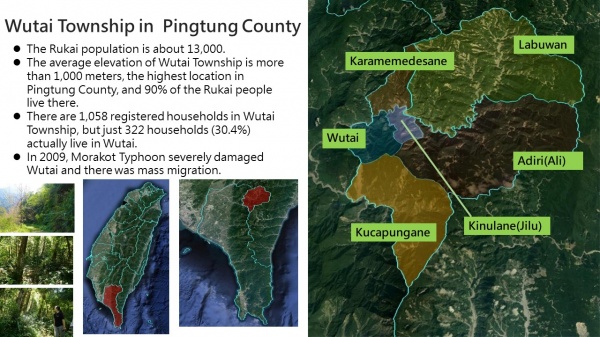Promoting Under-Forest Economy under the concept of Satoyama Initiative: A Case Study of Wutai Township, Pingtung County, Chinese Taipei
31.12.2018
-
SUBMITTED ORGANISATION
-
National Pingtung University of Science and Technology (NPUST); Forestry Bureau, Council of Agriculture, Executive Yuan, Chinese Taipei; Ministry of Education, Chinese Taipei; National Dong-Hwa University (NDHU), Chinese Taipei; Taiwan Forestry Research Institute, Council of Agriculture, Executive Yuan, Chinese Taipei
-
DATE OF SUBMISSION
-
31/12/2018
-
REGION
-
Eastern Asia
-
COUNTRY
-
Chinese Taipei (Wutai Township, Pingtung County)
-
SUMMARY
-
Under the influence of extreme climate change and severe population migration, how to maintain living conditions, preserve traditional knowledge, and encourage young people to return home is a very important issue. The "Under-Forest Economy", which replaces deforestation with the development of forest by-products, is an important strategy that has been promoted by the Taiwan government in recent years to aid the local area’s cultural. social and economic development. In order to help the Rukai people in Wutai Township, the research team and the Rukai people work together to promote the under-forest economy, marketing and selling eco-friendly agricultural and livestock products.
-
KEYWORD
-
Community forestry, Under-Forest Economy, Ecotourism, Collaborative management
-
AUTHOR
-
Dr. Meihui Chen, Professor, National Pingtung University of Science and Technology, Chinese Taipei, corresponding author
Summary Sheet
The summary sheet for this case study is available here.














